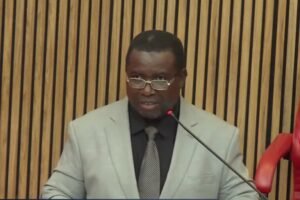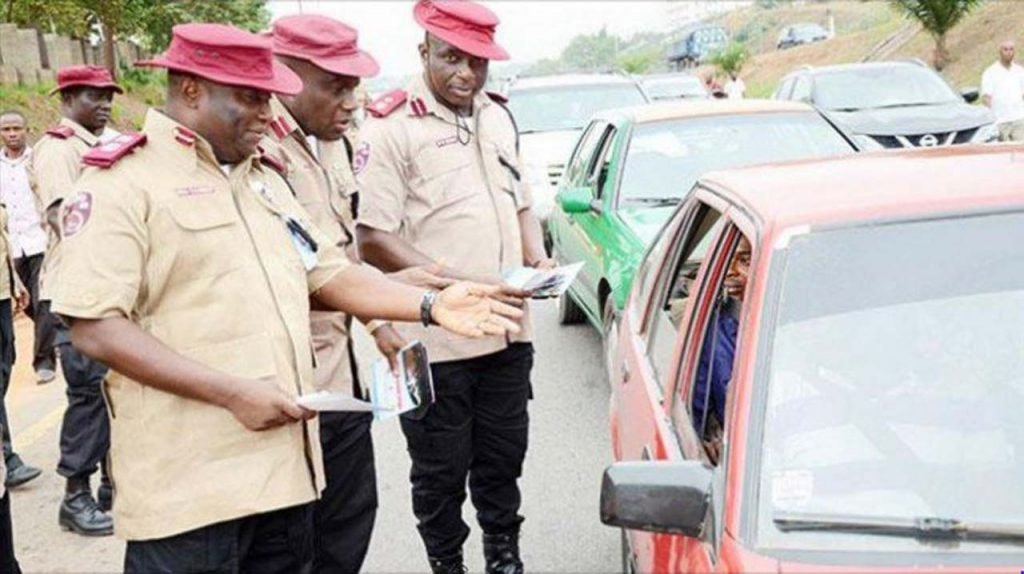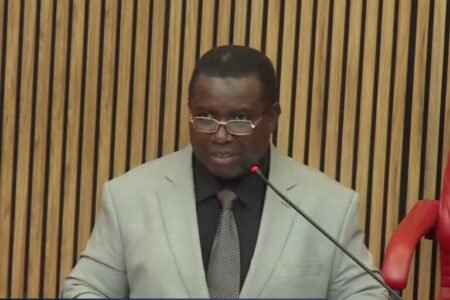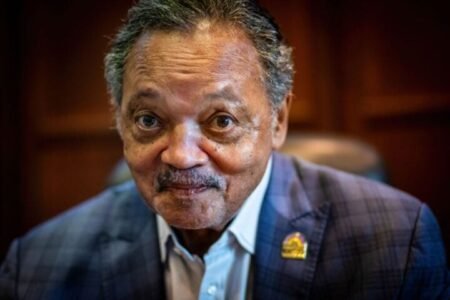The Federal Road Safety Corps (FRSC) has announced the introduction of a contactless biometric capture system for driver’s license issuance, marking a significant shift toward digitalization in Nigeria’s motor vehicle administration.
The development was announced as the FRSC launched its 2025 Ember Months Traffic Safety Campaign, which aims to reduce traffic accidents during the hectic festive season.
The FRSC campaign, which started on Monday in Abuja, is titled “Tech Responsibility for Your Safety: Stop Distracted Driving.” It targets unsafe driving behaviors that have been connected to an increase in crashes between December 15 and January 15.
During the flag-off, the FRSC Corps Marshal Shehu Mohammed stated that the new license system would eliminate not only delays but also the necessity for temporary paperwork.
“We have activated plans to overcome the perennial challenges associated with delays in obtaining the driver’s license and number plates. Our printing facility has been upgraded to print an average of 15,000 driver’s licenses daily.
“This production average will be increased to clear the backlog before the second week of November 2025,” the Corps Marshal noted.
Mohammed added, “We are also about to commence the contactless biometric capture with on-the-spot printing of the license, which will eliminate temporary licenses, thereby signaling the beginning of a digitalized one-stop-shop for processing driver’s licenses.
“With this development, it is expected that delays and other challenges related to the national driver’s license will be history.”
The corps marshal noted that the new system was designed in conjunction with relevant partners, including state governments, and that licensing is part of a concurrent legislative list.
“Globally, we have seen how a driver’s license has been obtained. As soon as you come, you get the driver’s license. What matters is the comprehensive data, the adequate data that will be stored for usage at any given time,” he said.
He went on to explain that the system would fully incorporate existing driving schools, vehicle inspection offices, and certification processes, but in a more efficient and simplified manner.
“We are almost through with the process. It is no longer going to be the process of putting hands on the biometric. This one is a contactless biometric. It doesn’t take time, and also, it captures all the essence required,” he said.
According to him, the entire process, from application to license issuing, will be completed immediately following capture.
“Once you reach the point of capture, you get captured, and you get your driver’s license instantly. There is no longer going to be a temporary driver’s license. There’s no longer going to be two weeks, one month, six months, or one year before you get your driver’s license,” Mohammed stated.
He added that the new method is also synced with the National Identification Number database, assuring data consistency and seamless identification verification.
He hailed the new contactless fingerprint system as “seamless,” stating that it captures biometric data without physical contact by utilizing advanced technology that detects fingerprints from a short distance.
The FRSC has also strengthened its collaboration with state governments and organizations such as the VIO and state revenue boards to ensure that the new system is implemented smoothly across the country.
During a press tour of the FRSC’s Driver’s License Print Farm on Monday, Aliyu Datsama, Deputy Corps Marshal in Charge of Motor Vehicle Administration, stated that the contactless system is now operational and will be implemented throughout the country, including Lagos.
Crucially, Datsama said that the Corps had been dealing with a significant “backlog of 800,000 unprocessed driver’s licenses, which has now been reduced to 400,000.”
“We are now working 24/7 to clear the remaining backlog.
“Our current daily production capacity is 40,000 licenses, and by the grace of God, we will clear everything in the next few weeks,” he stated.
He also asked Nigerians who had previously finished the capturing process to check and retrieve their licenses, stressing that “over 206,000 licenses remain unclaimed across various states.”










